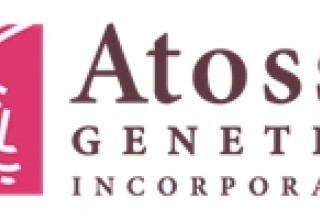Blood Test Might Spot High-Risk Breast Cancer Genes, Researchers Say
Online, February 20, 2013 (Newswire.com) - A new blood-based genetic test might predict the presence of dangerous BRCA1 or BRCA2 gene mutations in women, according to a study published in the January 22 issue of Cancer Prevention Research. These mutations significantly boost the risk for breast or ovarian cancer, which often develop at an early age in women with the mutations. The effectiveness of the test in different racial/ethnic groups will be assessed in a large study in Europe and North America.
Meanwhile, Atossa Genetics, Inc. has developed a diagnostic test, the ForeCYTE Breast Health Test, in pursuit of the goal of giving women a long head start in detecting precancerous conditions. The test incorporates the use of an FDA-cleared device similar to a breast pump in appearance, known as the Mammary Aspirate Specimen Cytology Test (MASCT) System, that is intended for use in the collection of nipple aspirate fluid for cytological testing in women between the ages of 18 and 73. As determined by the FDA, the collected fluid can be used in the determination and/or differentiation of normal versus premalignant versus malignant cells. The procedure is noninvasive and virtually painless for the patient, and takes about 10 minutes to administer. The samples obtained by the ForeCYTE method are tested at the National Reference Laboratory for Breast Health, a subsidiary of Atossa Genetics. If necessary, pre-cancerous changes can then be addressed with lifestyle intervention and, ultimately, the pre-cancerous changes may be treated locally with intraductal therapy, being developed by Atossa. This could serve as the platform to realize the goal of preventing breast cancer.
Atossa is also developing the NextCYTE Breast Cancer Test, which uses genomic analysis to provide important insights to improve the effectiveness of breast cancer treatment for women with early-stage breast cancer. The NextCYTE test will offer genomic evaluation of risk for recurrent breast cancer and therapy selection, evaluating more genes for more informed patient management. In pre-validation, academic testing the larger gene activity database of the NextCYTE test provided superior clinical predictive outcomes data compared to first-generation gene activity profiles. The NextCYTE test report indicates the risk of cancer recurrence and provides a personal profile that helps determine the best course of treatment.
Women who might be at risk for breast cancer should ask their doctors if the ForeCYTE test is right for them.
For more information, please visit www.atossagenetics.com.
